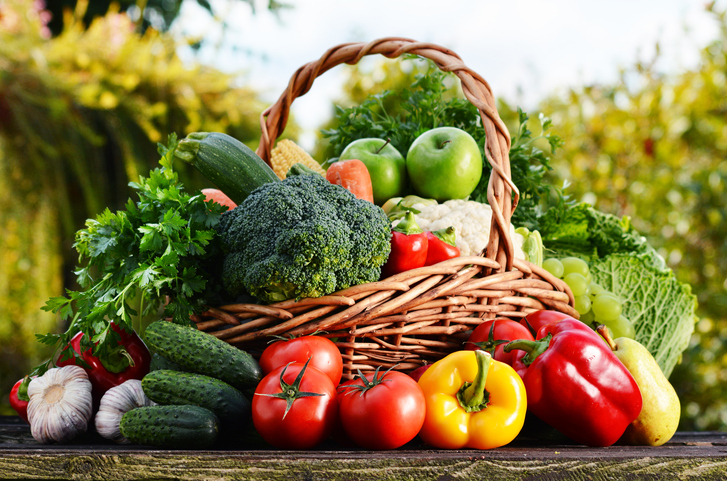Your Diet & Breast Cancer
A healthy diet helps your whole body, but did you know it can be good to reduce your cancer risk too?

One of the key risks for breast cancer is excess oestrogen not balanced by progesterone so if your hormone balance is good you have got off to the best preventative start.
However, what you eat affects your weight, and obesity can increase your risk for breast cancer. If you’ve already had the disease, extra pounds can also make it more likely to return.
If you choose a healthy diet you may boost your chances of living longer after breast cancer.
What are the things that can make a positive difference?
Soy-based foods such as tofu, soy milk, and edamame have chemicals called phytoestrogens, which are similar to oestrogen.
That once raised fears that they spelled trouble for women with breast cancer that uses oestrogen as fuel to grow. But the latest studies show soy doesn’t raise cancer risk — it may even lower the odds the disease will return.
Sugar is a more complicated issue as there is no direct link between sugar and breast cancer, excessive sugar consumption can contribute to weight gain and obesity, which are established risk factors for breast cancer.
A spoonful to take the edge off your coffee will not directly make cancer cells grow faster. But it’s still wise to keep an eye on how much you add to your diet.
Plant-based foods may lower your chances of getting breast cancer so eat more of them as researchers say this strategy especially may help protect against the most aggressive types of tumours.
Fruit and vegetables are also an important part of a diet that will help you control your weight, which is key for keeping breast cancer from coming back.
Whole grains like unprocessed wheat, rye, oats, corn, bulgur, rice, and barley when added to your diet may reduce your risk of breast cancer.
These foods have nutrients called phytochemicals that may lower the chances it will return, too and can also help protect against cardiovascular disease.
Alcohol is also a risk factor as according to Cancer Research UK as around 1 in 10 breast cancer cases are caused by drinking and that’s about 4,400 cases a year.
Beer, wine, and spirits boost oestrogen in the body, which raises concerns about tumours that are sensitive to that hormone.
Drinking alcohol doesn’t mean that you’ll definitely get cancer, but the risk is higher the more alcohol you drink.
Organic foods are grown without pesticides or weedkillers so have many benefits but the most important thing is that you eat plenty of fruit and vegetables and to wash them carefully to remove the residue of any chemicals.
Fat and ultra processed foods may have been linked to an increased risk.
Your best bet is to limit saturated fats and trans fats — which come in foods like beef, butter, cheese, ice cream, fried foods, and commercial baked goods.
When it comes to protein, go for lean kinds, such as fish and chicken.
Fibre is good for your overall health, especially your blood sugar levels, heart, and digestive tract.
You’ll get this naturally if you eat plenty of whole grains, fruit, vegetables, and legumes and some studies have suggested this type of diet can lower your odds of breast cancer. In particular, it may help protect against an aggressive type of tumour.
Vitamin D at low levels has been linked in some studies to a link between this and higher chances of breast cancer and it may also play a role in the growth of tumours.
Studies have not shown that taking vitamin D supplements reduces breast cancer risk.
The body produces adequate levels of vitamin D if you are getting enough daily skin exposure to the sun but in winter other sources include salmon, oysters, herring, mackerel, and sardines. You can also look for milk, yoghurt, and orange juice that have it added in.
Flavonoids are chemicals you find in certain plants, and are linked to lower breast cancer odds.
The evidence is strongest for two specific types, flavonols and flavones, especially for women who are past menopause.
You can find flavonols in onions, broccoli, and tea. Flavones come in parsley, celery, and drinks with chamomile.
Carotenoids are another type of phytochemical in plant-based food linked to lower breast cancer risk. You can get it from orange, yellow, and dark green vegetables and fruit.
Look to include more carrots, pumpkin, spinach, kale, sweet potatoes, and cantaloupe in your diet.
Phenolic compounds are types of chemicals that may lower your chances of breast cancer and in some cases slow tumour growth.
Add more to your diet in the form of garlic, green tea, soybeans, and flaxseed. Good fruit and vegetable sources are broccoli, cabbage, tomato, aubergine, cucumber, and watermelon.
Helpful information:
With so many potential health benefits, having good nutrition is the foundation for protection and prevention from so many risks.
However, what is more important when trying to reduce breast cancer risk is to ensure that you have good levels of progesterone to balance any excess oestrogen in your body.
Progesterone is known to be protective against hormonal cancer and you will find more information here.
https://anna.blog.wellsprings-health.com/natural-progesterone-as-a-preventive-for-breast-cancer/


















